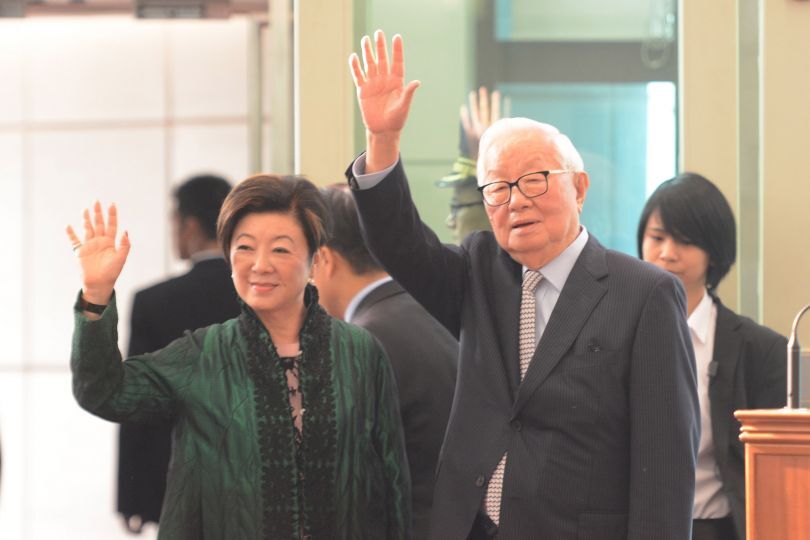TSMC founder Chang says that the U.S. has the world's best chip designers

The two most advanced chip foundries in the world at the moment are Taiwan's TSMC and South Korea's Samsung. With both providing phone manufacturers with chips produced using their 3nm process node next year, TSMC recently said that it will start shipping 2nm chips to customers in 2026.
In theory, the lower this process node number goes, the smaller the transistors used in these chips become. That allows chip designers and manufacturers to put more transistors in these integrated circuits allowing them to be faster and/or more power-efficient.
The U.S., concerned about geopolitical events putting a crimp in the supply chain for chips (especially the possibility of China making a move on Taiwan) would love to become self-sufficient in the design and production of chips. Design is actually not an issue as U.S. firms like Apple, Qualcomm, Intel, and others have no problem designing chips (more on this later). But building a foundry takes oodles of money and time. It also requires proximity to a reliable supply chain.
TSMC is working with the U.S. to build a fab (a plant that manufacturers chips) in Arizona. The facility should start producing chips by 2024 although production will reportedly be limited at first to 5nm chips which will have been replaced by the 3nm process node by the time the fab starts running in the states.

TSMC founder Morris Chang, waving to a crowd
But TSMC founder Morris Chang considers the U.S. attempt to be relevant in chip manufacturing to be "a wasteful, expensive exercise in futility." According to The Register, Morris spoke as a guest of the Brookings Institution think tank and stated that the U.S. does not have the talent pool necessary to create a thriving business in the states manufacturing chips.
Chang cited Taiwan's large population that helped TSMC become the world's top independent foundry. While the U.S. moved away from producing manufacturing professionals, Taiwan was loaded with talent. As we mentioned earlier in this story, where the U.S. does have the talent is in chip design, something that Morris isn't shy about saying.
The 90-year-old Chang has high praise for the chip design talent in the U.S. calling it "the best in the world." He adds that "Taiwan has very little design talent, and TSMC has absolutely none." As an independent foundry, TSMC wouldn't be expected to produce its own designs since its job is to produce chips designed by other companies like Apple, Qualcomm, MediaTek, and more.
Talking about the costs of running a fab in the U.S., Chang says that the small plant in Oregon that TSMC has run for 25 years is making money but not enough to justify expanding the facility. "We were extremely naive," said Chang, "in expecting comparable costs, but manufacturing chips in the US is 50 percent more expensive than in Taiwan."
U.S. experts happen to agree with Chang's take on the situation with one think tank expecting several thousand unfilled positions in any new U.S. based fabs. With Chang's comments in mind, why would TSMC lay out $12 billion to build the Arizona factory? "We did it at the urging of the US government, and TSMC felt we should do it," Chang said.
Morris also pointed out that while chip production state-side will certainly see an increase, "there will be a high per-unit cost increase, and it will be hard for the US to compete internationally." Chang also worries about a possible war between China and Taiwan. If there is a war, U.S. chip production might prove to be profitable with TSMC possibly not able to continue normal production.
Morris also pointed out that while chip production state-side will certainly see an increase, "there will be a high per-unit cost increase, and it will be hard for the US to compete internationally." Chang also worries about a possible war between China and Taiwan. If there is a war, U.S. chip production might prove to be profitable with TSMC possibly not able to continue normal production.
He adds that if there is a war between China and Taiwan, "the U.S. will have a lot more than chip manufacturing to worry about." Back in December, we passed along a stat that said 90% of the world's most advanced chips are shipped from Taiwan. Worried about how vulnerable that makes the country, and in turn big chip consuming nations like the U.S., foundries need to work in advance on contingency plans in case Taiwan-based fabs are damaged or destroyed in a war.










Things that are NOT allowed: